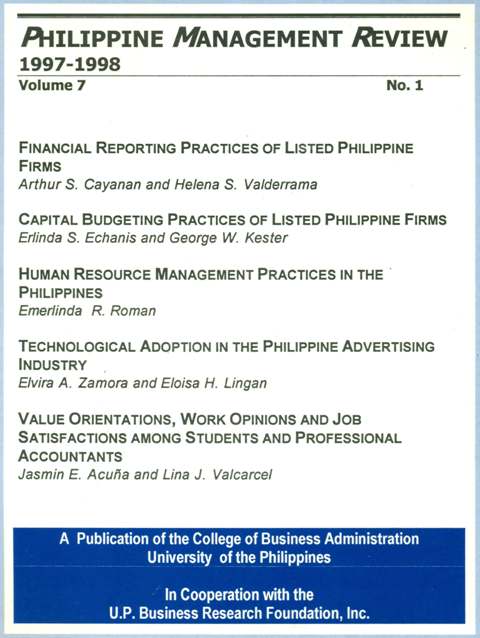Financial Reporting Practices of Listed Philippine Firms
Abstract
This article summarizes the results of a study undertaken to determine the degree of compliance by Philippine firms to the rules and principles of financial reporting contained in Philippine generally accepted accounting principles (GAAP). A second objective of the study was to determine the users’ degree of satisfaction with financial statement information.
In general, the researchers found that firms in the study complied with generally accepted accounting principles. A majority of the firms studied, however, were inclined to follow only the minimum disclosures required by GAAP. Prevalent instances of non-compliance were noted for the required financial disclosures relating to consolidated financial statements, long-term investments, earnings per share (EPS) computations, and operating expenses. There were also significant instances of violations of specific rules uncovered which have the potential of resulting in damage to investors and other users who rely on the information in these reports.
The user survey produced the following: (1) Users of financial statement information expressed an “average” level satisfaction over the content and amount of disclosures in firms’ financial reports. (2) While relying heavily on audited financial statements as a source of financial information, users believe that window-dressing or manipulation of certain financial statement items occurs most of the time and the degree of window-dressing is perceived as significant to very significant. (3) On whether or not external auditors are impartial/objective, users are divided almost equally although they do place much importance on the auditor’s opinion. This, despite the fact that a significant majority of them believe that auditors primarily serve the interests of the audited firm rather than the public.
Some recommendations are offered for the improvement of financial reporting practices in the Philippines


